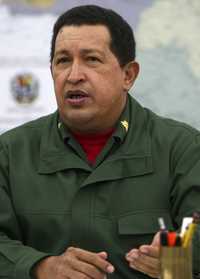Estados Unidos enfrenta una crisis que debe resolver preservando su carácter de nación de inmigrantes. Esto comienza respetando la dignidad e integridad de los seres humanos. Caracterizar el fenómeno de la migración como un asunto de criminalidad aleja al país, cada vez más, de estos principios universales. Cuando 12 millones de personas huyen de la violencia, de desastres naturales y de la extrema pobreza no se habla de crimen, sino de crisis humanitaria.
Este año, esa nación intentará nuevamente reparar y modernizar un sistema migratorio quebrantado que permite que la sociedad estadunidense se beneficie y goce de los frutos del trabajo del inmigrante sin aceptar su humanidad y sin reconocer sus derechos. Los legisladores ya hicieron un intento y fallaron en 2006 y 2007. No pudieron llegar a un acuerdo alrededor de la reforma migratoria, dando luz verde para que los estados, los condados y las municipalidades asuman la responsabilidad del gobierno federal y adopten su propia versión de reforma migratoria. Esto únicamente ha causado sufrimiento y caos.
Las fuerzas antimigrantes extremas de ese país han envenenado el debate con odio y racismo. La ola de ataques contra el pueblo migrante toma matices cada vez más agresivos, más groseros y crueles. Pareciera que la ingratitud y perversidad no tienen parámetros éticos, morales o espirituales. Los adversarios procuran hacer la vida del pueblo migrante tan mísera y desdichada como para que éste se autodeporte. Para ello, deben cerrar todas las posibilidades de sobrevivencia económica y despojar a la persona migrante de sus derechos y de su humanidad.
Las agresiones van desde negar servicios de salud básicos hasta transformar doctores y enfermeras en agentes de migración. Desde negar subsidios de vivienda, incluso a personas con documentos, hasta criminalizar a propietarios de casas y apartamentos por rentarle a indocumentados. Desde tener a agentes de migración en las cárceles hasta dar poder a la policía de parar a cualquier persona en la calle y pedirle sus documentos migratorios. Desde quitarle el derecho a un proceso debido al indocumentado hasta darle poder de decisión absoluta a los oficiales de migración.
La embestida contra el migrante no sólo se reduce a una estrategia de desgaste económico. Despojarlo de su dignidad humana es ciertamente una de las premisas fundamentales para legitimar y normalizar cualquier allanamiento en su contra. Es decir, se trata de humillarlo para que sus derechos sean vistos, de alguno u otro modo, en otra dimensión. Se comienza caracterizándolo como un ser ilegal
, calificativo que ha adquirido connotaciones racistas, de desprecio y de burla. Este epíteto ha evolucionado de ilegal
a invasor
, de criminal
a terrorista
.
En su afán de materializar este proceso de deshumanización, los adversarios de los inmigrantes están implementando prácticas de perfil racial, persecución sistemática y niveles de degradación de la persona no vistos en más de una generación. En este sentido, no es una simple coincidencia que madres indocumentadas detenidas tengan que dar a luz esposadas de pies y manos a las camillas. No es casualidad que se desfile por las calles a prisioneros indocumentados y que se llame a los medios de comunicación para humillarlos y montar un show. No es una eventualidad arrancar a una madre de sus hijos en público y darle a los niños juguetes para consolarlos. No es una simple circunstancia establecer una línea telefónica para que cualquier persona sospechosa de ser indocumentada pueda ser reportada. No es puramente un incidente que alguaciles y oficiales electos se conviertan en héroes de grupos supremacistas blancos. Sobre todo, no es algo surgido de la nada que este tipo de maltrato se vea como normal, incluso por personas que simpatizan con el pueblo migrante indocumentado.
Esta estrategia de desgaste impulsada por la extrema derecha y los grupos antimigrantes ya no distingue entre los indocumentados y los que poseen estatus migratorio legal. El resultado es que en algunos lugares de Estados Unidos, los latinoamericanos (inmigrantes y estadunidenses) no gozan de las mismas protecciones constitucionales que posee la comunidad blanca. Arizona es prueba de esta realidad. El jefe del Departamento de Alguaciles del condado de Maricopa deliberadamente ha decidido interrogar, detener, arrestar y deportar a todas aquellas personas que tengan apariencia mexicana.
Muchas de estas prácticas están ocurriendo en el país, pero de manera más pronunciada en ese condado. Dicho estado se ha convertido en el laboratorio donde se experimentan las medidas y prácticas antimigrantes más aberrantes del país.
Pero en Arizona también hay lucha y resistencia. Las familias inmigrantes, sus organizaciones, sus aliados y amigos están alzando la voz y diciendo basta. El 16 de enero saldrán a las calles para denunciar la persecución y criminalización del migrante. Van a exigir el fin de los programas que permiten la colaboración entre la policía y agentes federales, incluyendo la medida 287g. Van a marchar para contener la expansión de las políticas y prácticas antimigrantes a otros lugares del país. Van a marchar para exigir una reforma migratoria justa, inclusiva, que conduzca a la ciudadanía y la igualdad política. Van a marchar para asegurar que Estados Unidos preserve su carácter de nación de inmigrantes. Van a marchar para asegurar que éste sea un país de inclusión, no de exclusión. Van a marchar para reclamar su derecho a existir. Van a marchar para defender los derechos civiles y humanos de todos y todas.
Dos días antes de celebrar el aniversario del doctor Martin Luther King Jr. la comunidad inmigrante y sus aliados en Arizona van a recrear su legado. Van a continuar marchando y resistiendo pacíficamente para que el sueño del Dr. King se haga realidad. A cuatro décadas de su asesinato, las comunidades de color, los latinos y los afroamericanos continúan luchando para que las personas sean juzgadas por el contenido de su carácter y no por el color de la piel. Si el Dr. King viviera, el 16 de enero marcharía junto a las familias latinas de Arizona. Pero su sueño se cumplirá algún día. Algunas veces la justicia tarda, pero no olvida. Sí se puede.
*Pablo Alvarado es director ejecutivo de la Red Nacional de Jornaleros y Jornaleras (National Day Laborer Organizing Network, NDLON), alianza nacional de 41 organizaciones de base dedicada a la defensa y organización de trabajadores inmigrantes eventuales en Estados Unidos









